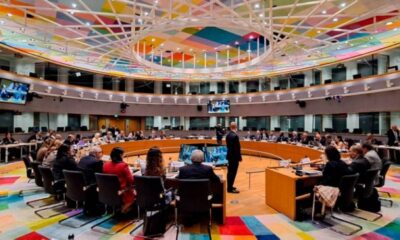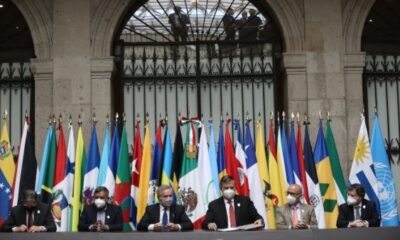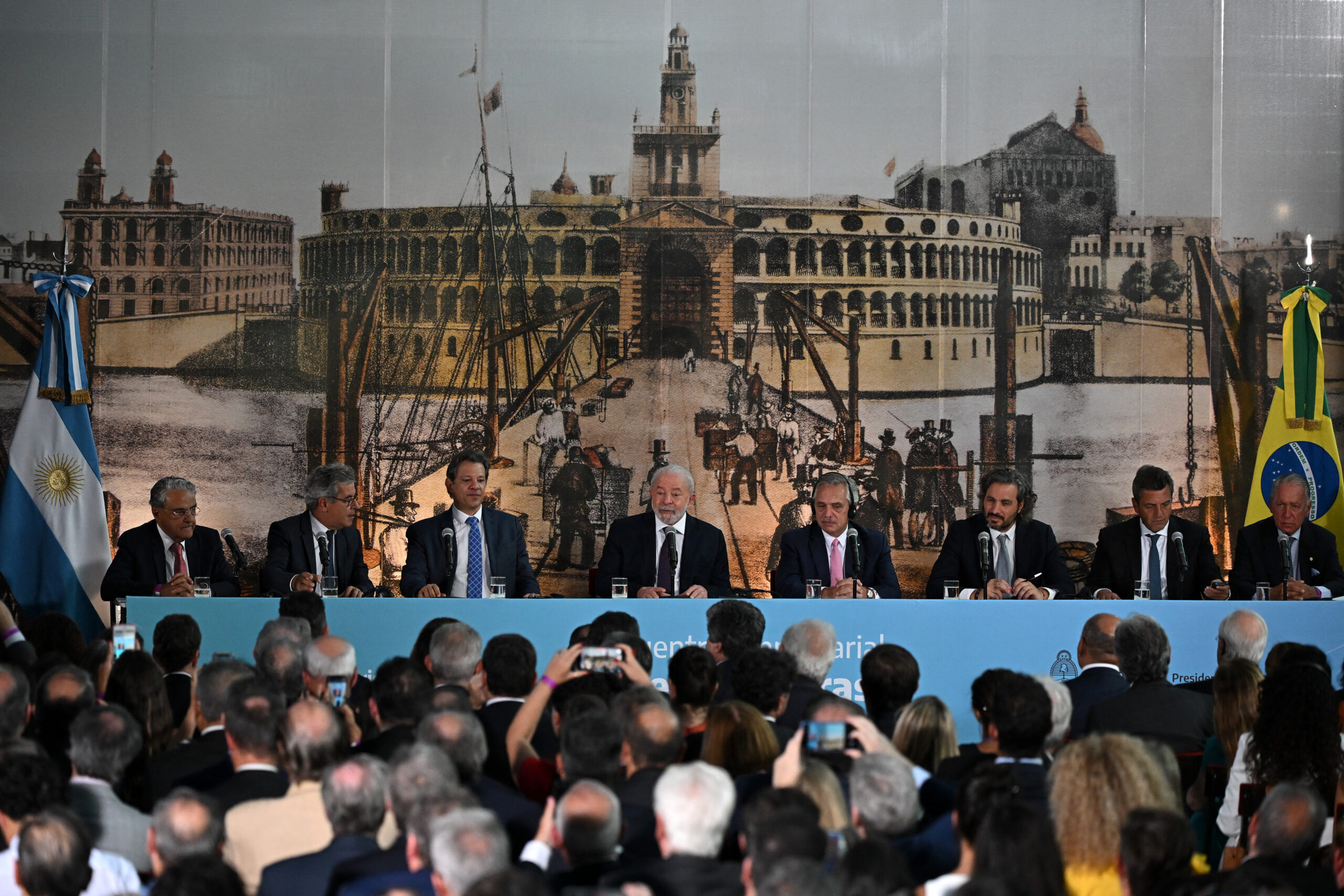Internacionales
Agreement to promote regional development to address migration
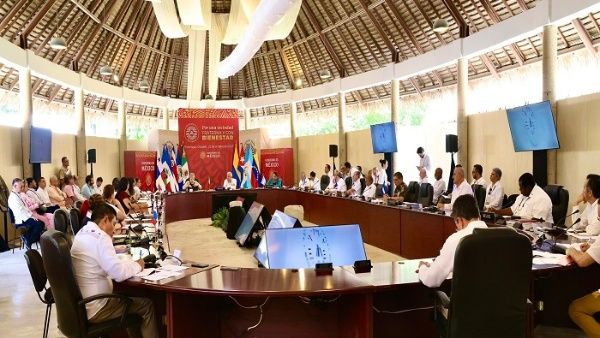
October 23 |
Latin American countries participating in the Palenque Summit on migration, held this Sunday in the Mexican state of Chiapas (southwest), agreed to develop and implement an action plan for development to address the structural causes of migration in the region.
The meeting was attended by leaders and high-level representatives from Belize, Colombia, Costa Rica, Cuba, Ecuador, El Salvador, Guatemala, Haiti, Honduras, Panama and Venezuela.
Mexico’s Secretary of Foreign Affairs, Alicia Bárcena, read the communiqué-declaration of the “Palenque Meeting: for a fraternal neighborhood with well-being”, which defined that the main causes of the growing irregular migratory flow faced by the region are structural and of economic, political and social origin, in addition to factors linked to climate change.
The participants considered that the current exodus is also caused by external factors, such as unilateral restrictive measures of a criminal nature applied by third countries, which affect entire communities and, to a greater extent, the most vulnerable population groups.
In addition, they warned of the need to address irregular migration from a human rights (HR) perspective, in order to address its structural causes and regulate migratory flows jointly.
In light of this diagnosis, the heads of state and high-level representatives of the 11 countries agreed to develop a development action plan to address the structural causes of irregular migration in the region, which will be based on priority objectives and an understanding of the realities of each country.
Priority areas were defined as: food production and recovery of the agricultural sector, environmental preservation, employment generation, energy security (including migration to clean energy and decarbonization processes), health self-sufficiency, intra-regional trade and investment, and combating organized crime, corruption and human trafficking.
The heads of state and government, as well as high-level representatives attending Chiapas, urged an end to unilateral coercive measures and emphasized that they are contrary to international law.
The plan of action included the promotion of intra-regional trade and preferential tariffs for basic goods and services; the call for countries of origin, transit and destination to respect the right to migrate, safeguard the lives of migrants and create regularization options; and a call for destination countries to adopt migration policies in line with the regional reality and abandon selective policies, such as those that allow the regularization of certain nationalities.
It also called for a decisive contribution to Haiti’s sustainable development, the reestablishment of its human security environment and the normalization of its economic, political and social situation.
Other actions that make up this plan are to propose in a coordinated manner that the international financial debt architecture be rethought so that lower income countries achieve a higher level of development and reduce the intention to emigrate, and to request destination countries to expand regular, orderly and safe channels for emigration, with an emphasis on labor migration.
The participants in the Palenque Summit agreed to hold dialogues at the highest level on these issues through a working group to be created by the Ministries of Foreign Affairs. It was made clear that these agreements will be linked to the High Level Meeting on Migration and Development in Latin America and the Caribbean, proposed by Colombia and Mexico, which will take place in the first quarter of 2024.
In addition, they proposed to the governments of Cuba and the United States to hold a comprehensive dialogue on their bilateral relations as soon as possible.
Referring to the meeting, the President of Venezuela, Nicolás Maduro, recalled that the country has faced more than 930 unilateral coercive measures and that during the “Palenque Meeting: for a fraternal neighborhood with well-being” it was demanded that the U.S. and other nations put an end to them.
He expressed that Venezuela will fully support the approved action plan. He highlighted the unity expressed by the participants to adopt a development model and their own path that would result in integration, as the Liberator Simón Bolívar would have wished.
Internacionales
Erik Prince Backs Ecuador’s Daniel Noboa in Fight Against Crime and “Narcoterrorism”

Erik Prince, the founder of the private security firm Blackwater (now called Academi), expressed his support for Daniel Noboa, the president and re-election candidate in Ecuador, and stated that he hopes to continue working together in the fight against crime.
“I hope Ecuador chooses law and order. We are here to help, to combat gangs, and to provide the tools for the government to restore law and order, peace, and prosperity,” said the former U.S. military member, who arrived in Guayaquil to participate in an operation alongside the Ministers of the Interior, John Reimberg, and Defense, Gian Carlo Loffredo.
Prince did not hold back in his criticism of left-wing governments, such as Venezuela, which he described as a “narco-state with mass drug processing,” while also linking the party Revolución Ciudadana, of which the Correista Luisa González is a member (and who faces Noboa in the second electoral round), as an “ally of Nicolás Maduro.”
Minister Loffredo had already announced on Tuesday that a team from Prince would arrive in the country in the coming days to provide “advisory and training” to security forces, as part of the “strategic alliance” that President Noboa agreed upon with the Blackwater founder to fight against “narcoterrorism,” details of which have not been disclosed.
Internacionales
Cuban Supreme Court Confirms Successful Completion of Prisoner Release
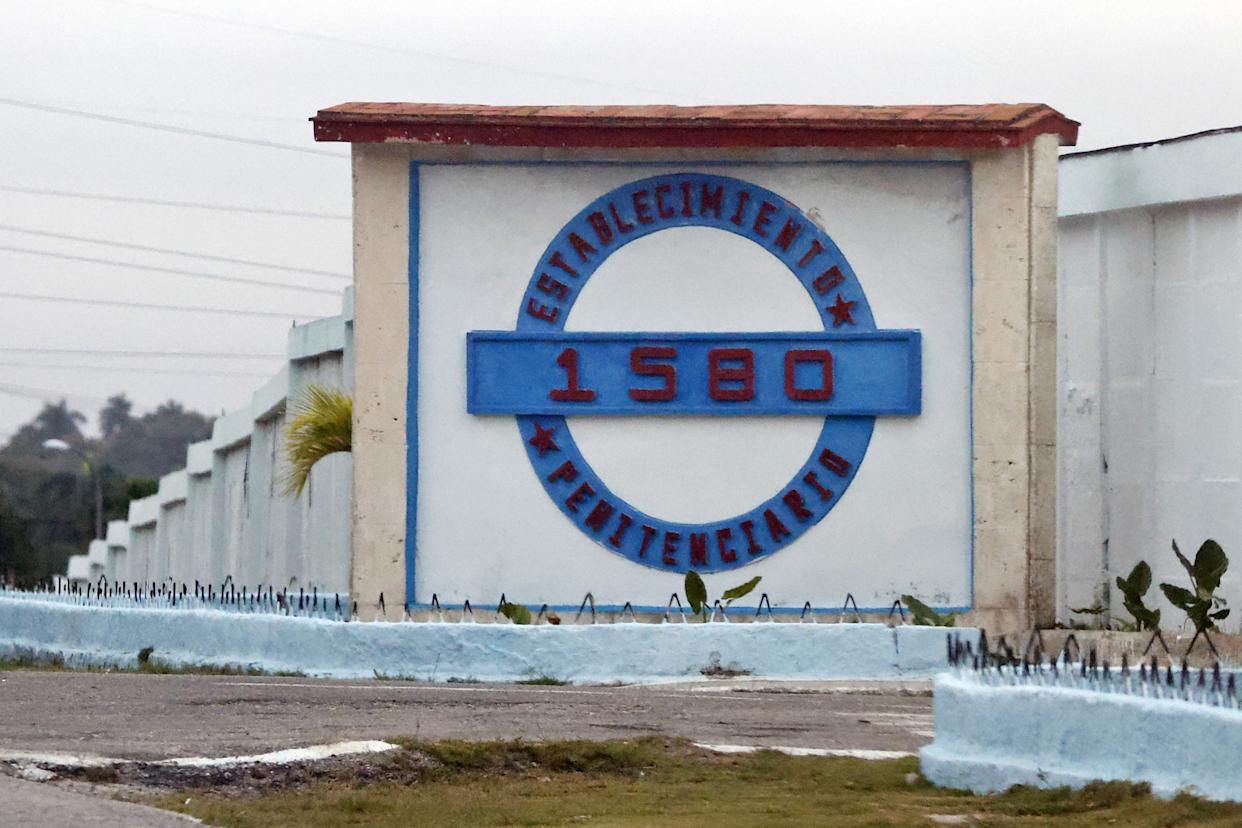
The People’s Supreme Court of Cuba announced on Monday that it has successfully completed the release of 553 prisoners, a process first announced on January 14. Among those freed were political prisoners, including opposition figures José Daniel Ferrer and Félix Navarro.
The announcement came shortly after Washington, in the final days of the Biden administration, decided to remove Cuba from its list of state sponsors of terrorism.
While Havana has insisted that the releases were a unilateral and sovereign decision, the United States maintains that the measure was part of an agreement mediated by the Vatican. According to U.S. sources, many of those released were participants in the July 11, 2021, anti-government protests, the largest demonstrations Cuba has seen in decades.
Cuban authorities have not provided a list of the released prisoners or a timeline for the implementation of the measure, despite multiple requests for information from EFE.
Internacionales
Russia calls Zelensky’s Washington visit a “complete failure” after altercation with Trump

Russia stated on Saturday that Volodymyr Zelensky’s visit to Washington was a “complete failure” following the altercation with Donald Trump, accusing the Ukrainian leader of being “obsessed with continuing the war” with Moscow.
The visit “was a complete political and diplomatic failure of the Kiev regime,” said Russian Foreign Ministry spokesperson Maria Zakharova in a statement. Zakharova accused Zelensky of being “incapable of demonstrating a sense of responsibility,” of “rejecting peace,” and of using “lies and manipulations to justify the continuation of hostilities and the reception of military and financial aid from the West.”
Zelensky’s visit to Washington on Friday turned into a verbal brawl before cameras worldwide, when his counterpart, Donald Trump, and Vice President J.D. Vance accused the Ukrainian leader of being ungrateful for U.S. aid and rejecting peace talks. Zelensky was prematurely escorted out of the White House without signing the agreement he had gone to Washington for, which involved giving up the exploitation of Ukraine’s mineral resources in exchange for security guarantees.
“With his excessively rude behavior during his visit to Washington, Zelensky confirmed that he is the most dangerous threat to the international community as an irresponsible warmonger,” Zakharova stated.
She also accused European leaders of “political weakness” and “baseness” for backing Zelensky after the “moral lesson” he received in Washington.
-

 International5 days ago
International5 days agoArsenal stun Real Madrid at the Bernabéu to reach Champions League semifinals
-

 Central America4 days ago
Central America4 days agoNicaraguan Exiles to Mark 7th Anniversary of 2018 Protests with Global Commemorations
-

 International4 days ago
International4 days agoDominican ‘False Hero’ Arrested for Faking Role in Nightclub Collapse That Killed 231
-

 International3 days ago
International3 days agoACLU seeks emergency court order to stop venezuelan deportations under Wartime Law
-

 International5 days ago
International5 days agoBogotá residents line up for yellow fever vaccine amid national alert
-

 Central America3 days ago
Central America3 days agoUN complaint filed against Costa Rica over detention of migrant children
-

 International5 days ago
International5 days agoDeSantis’ immigration crackdown sparks alarm in Venezuelan Communities in Doral
-

 International5 days ago
International5 days agoMexico refuses to restore ties with Ecuador while Noboa remains in office
-

 International1 day ago
International1 day agoThousands rally nationwide against Trump’s threat to U.S. democracy
-

 Central America18 hours ago
Central America18 hours agoSenator Van Hollen Meets with Deported MS-13 Member in El Salvador; Trump and Bukele React
-

 International18 hours ago
International18 hours agoPope Francis Appears for Easter Blessing, Calls for Peace and Religious Freedom
















